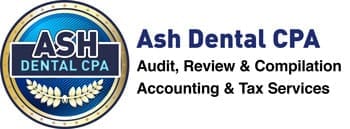Effective Tax Planning for Dental Practices: Lower Your Tax Burden and Enhance Profitability

Navigating the complex world of taxes is a critical aspect of running a successful dental practice. With ever-evolving tax regulations, understanding and implementing effective tax planning strategies can be challenging, yet necessary for minimizing your tax burden, enhancing profitability, and ensuring your practice’s long-term financial health. Ash Dental CPA specializes in providing comprehensive financial and business advisory services, offering targeted expertise aimed at helping dental practitioners across the United States maximize profits and improve their business operations.
Understanding and implementing effective tax planning strategies while navigating the intricacies of tax regulations is critical to a dental practice’s financial success. By leveraging the expertise and guidance of a dedicated dental CPA, you can confidently develop and execute a tax planning strategy that not only keeps your practice compliant but also takes advantage of available opportunities to minimize your tax burden, enhance profitability, and secure your practice’s long-term financial viability.
In this guide, we will explore essential tax planning strategies tailored for dental practices, including maximizing deductions, leveraging tax credits, managing retirement savings, and staying current with tax regulations. Armed with effective tax planning strategies and professional guidance from trusted advisors like Ash Dental CPA, you can optimize your practice’s financial performance, maximize savings, and ensure compliance with tax regulations.
1. Maximizing Deductions
Diligently tracking and claiming legitimate deductions can significantly reduce your practice’s taxable income. Consider the following categories when exploring deduction opportunities:
Business Expenses: Ensure all qualifying business expenses are accurately recorded and deducted, including necessary and ordinary expenses related to running your dental practice, such as rent, utilities, marketing, and lab fees.
Medical Equipment and Supplies: Deduct the cost of purchasing or leasing dental equipment, instruments, and supplies as a business expense, keeping in mind the available Section 179 deduction for purchasing qualifying equipment.
Continuing Education and Professional Development: Expenses related to maintaining professional licensing, attending conferences, and participating in educational courses are generally tax-deductible, subject to certain limitations.
Home Office Deduction: If you operate a portion of your dental practice from a home office, you may qualify for the home office deduction, enabling you to deduct a portion of your mortgage interest, property taxes, and utilities.
2. Leveraging Tax Credits
Tax credits provide dollar-for-dollar reductions in your tax liability, making them a valuable aspect of dental practice tax planning:
Research and Development (R&D) Credit: If your practice is engaged in activities aimed at developing new dental techniques, products, or services, you may qualify for the R&D tax credit.
Work Opportunity Tax Credit (WOTC): Hiring employees from certain target groups, such as veterans or individuals receiving government assistance, can qualify your dental practice for the WOTC.
Energy Efficiency Credits: Investing in energy-efficient equipment or facility improvements may entitle your practice to energy efficiency tax credits or deductions.
3. Managing Retirement Savings and Employee Benefits Plans
Optimizing your retirement savings and employee benefits plans can contribute to tax savings for both your dental practice and your employees:
Employer-Sponsored Retirement Plans: Implementing a 401(k) or other qualified retirement plan enables you and your employees to make tax-deferred contributions and reduces the taxable income for both your practice and your employees.
Health Savings Accounts (HSAs): Offering a high-deductible health plan paired with an HSA can provide tax benefits for your practice and employees, allowing tax-deductible contributions and tax-free withdrawals for qualified medical expenses.
Flex Spending Accounts (FSAs): Establishing an FSA allows employees to allocate pre-tax dollars toward qualified expenses such as healthcare or dependent care costs, reducing both employee and employer tax liabilities.
4. Staying Current with Tax Regulations
To effectively minimize your tax burden and maintain compliance with tax regulations, staying informed of changes in tax legislation is essential:
Monitor Legislative Changes: Regularly review federal and state tax laws for changes that may impact your dental practice, such as modifications to deduction limits or tax brackets.
Consult with a Dental CPA: Engage the services of a dental CPA, such as Ash Dental CPA, for guidance on navigating tax law changes and implementing effective tax strategies tailored for dental practice owners.
Maintain Accurate Recordkeeping: Accurate and thorough recordkeeping is crucial to substantiate deductions, credits, and other claims on your tax return, ensuring compliance and minimizing the risk of an audit.
Conclusion
Implementing effective tax planning strategies is crucial for dental practices seeking to minimize their tax burden, enhance profitability, and maintain compliance with the ever-evolving tax regulations. By maximizing deductions, leveraging tax credits, managing retirement savings, and staying current with tax regulations, you can ensure that your practice is well-positioned for financial success while mitigating potential risks associated with non-compliance.
Partnering with a dental CPA like Ash Dental CPA can provide expert guidance and insights tailored specifically to the unique financial needs and challenges faced by dental practice owners. To learn more about the benefits of strategic tax planning for dental practices and the comprehensive financial and business advisory services offered by Ash Dental CPA, consider scheduling a consultation with our dental tax accountant, empowering your practice with the knowledge and support necessary to optimize your tax situation and drive sustainable business growth. Contact us today.
